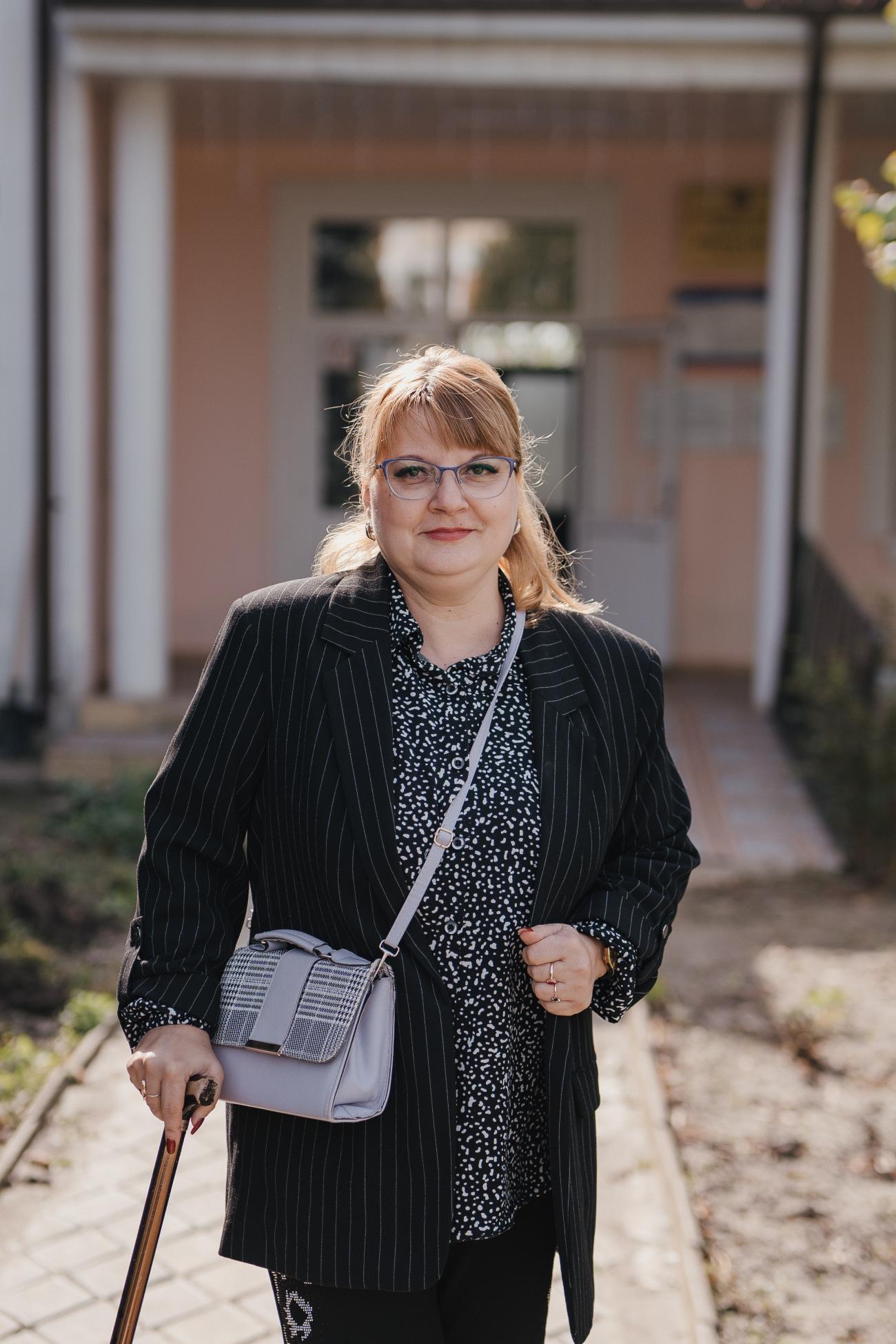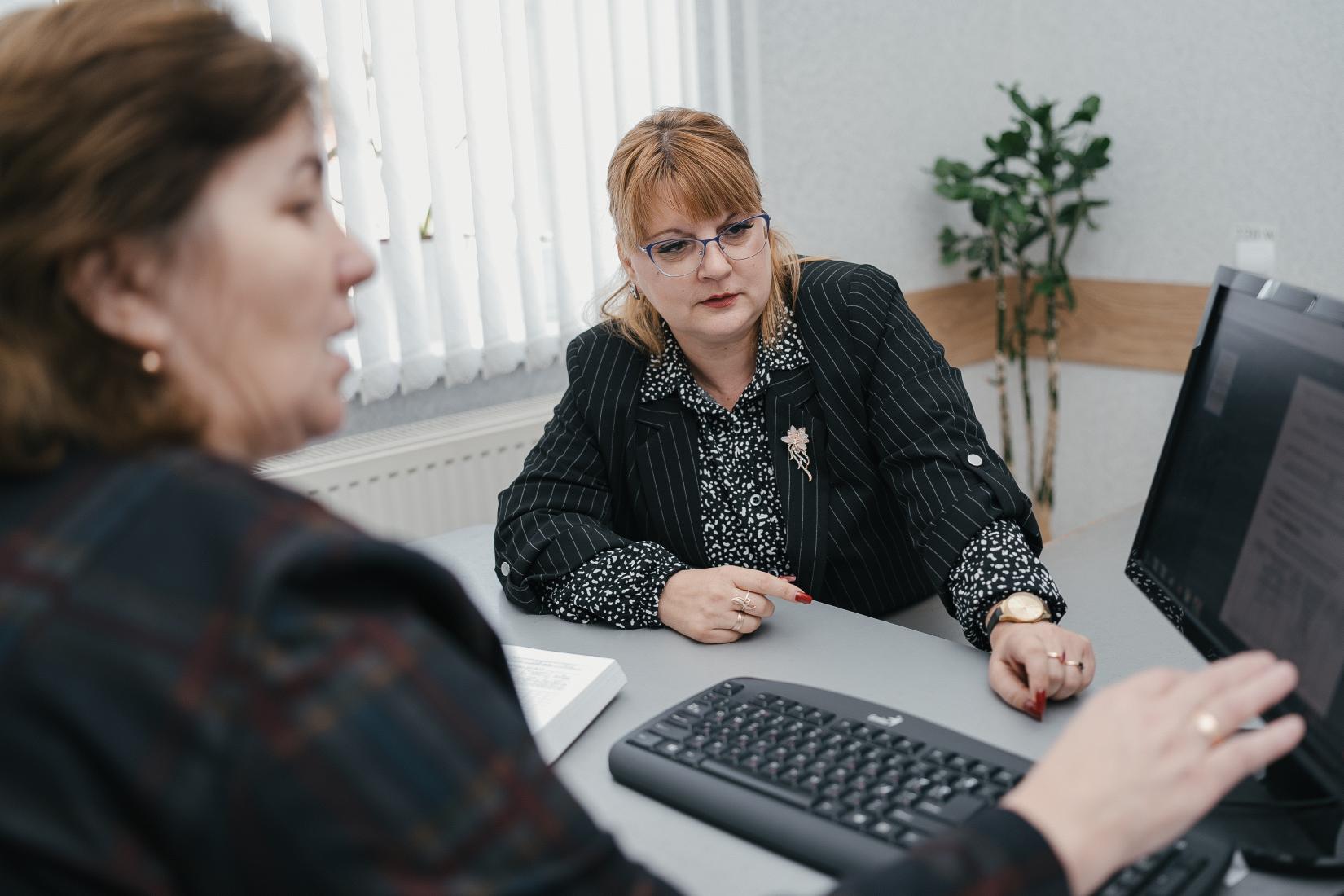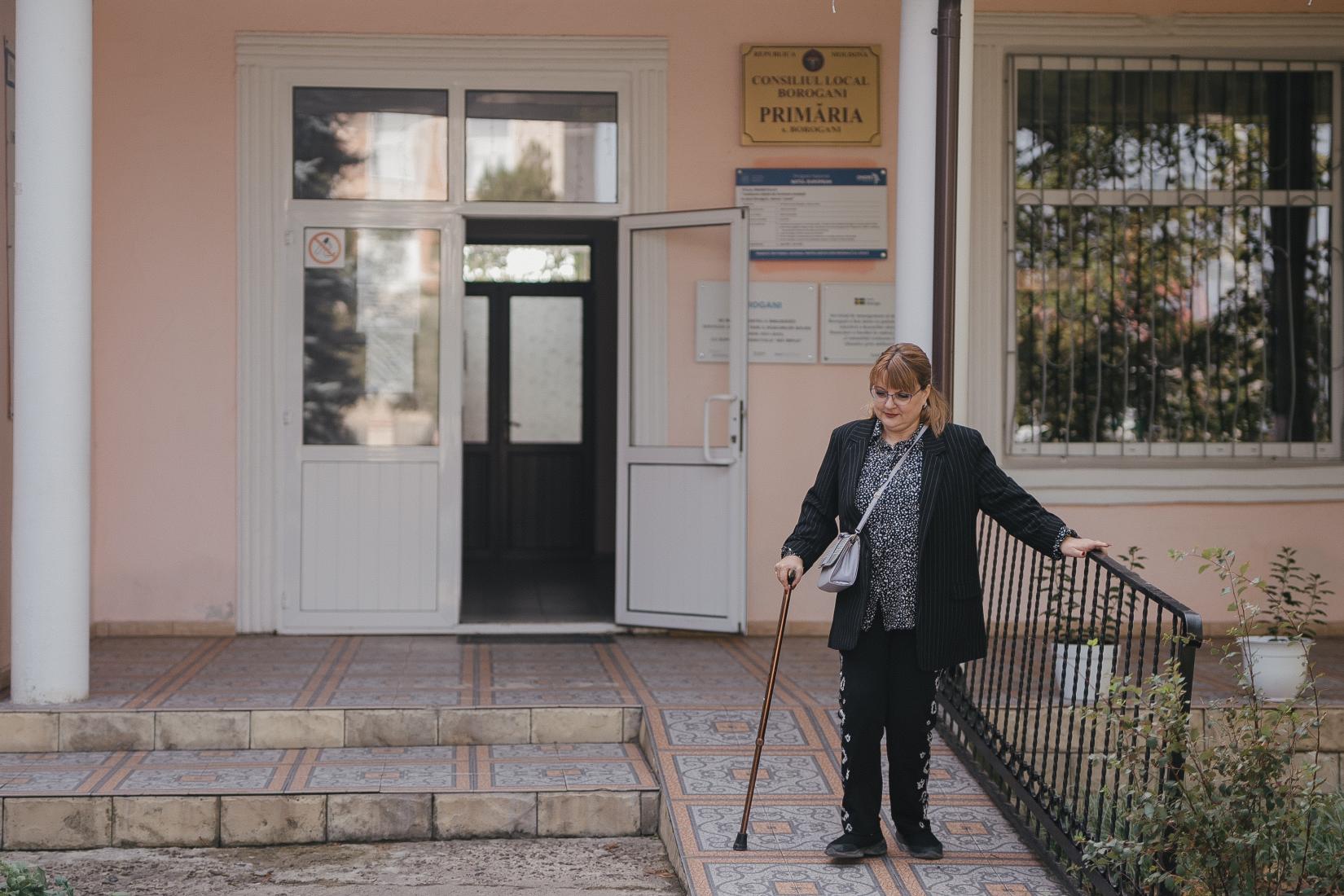Lilia Puzderi: Lack of inclusion and acceptance from society is a barrier to inclusion of persons with disabilities

Lilia is one of the four women with disabilities in the Republic of Moldova who hold the position of counselor in the local public administration.
Lilia Puzderi is 46. She was born in Hincesti, but 15 years ago the village of Borogani in Leova district became her second home and the place, from where she is making Moldova better.
Lilia is one of the four women with disabilities in the Republic of Moldova who hold the position of counselor in the local public administration. If in childhood and adolescence she faced discrimination and marginalization, today she is convinced that disability is not a barrier to the realization of personal aspirations. In her opinion, the society we live in can become open to diversity and more inclusive, if people see positive examples of persons with disabilities involved and participating in the decision-making process, like she is.

Lack of acceptance by society is a barrier to the inclusion of persons with disabilities
Lilia was born into a family of cooks in Hincesti. Because of a trauma at birth, she has a locomotor disability. In a gentle voice and with much reconciliation, a sign that she has told the story thousand times, she describes her childhood experience:
"I have infantile cerebral palsy with paraparesis. When I was a kid, the most complicated thing was to explain that it was not something contagious, that I could play with other kids without harming them. At times, however, I felt that my parents were also embarrassed having to explain to people "what Lilia has", confesses the protagonist overwhelmed by emotions.
Employment gives you confidence and courage
At the age of 24 she got her first job, and that stage in life gave her a lot of confidence in her abilities and the courage to dream. Then another job followed, at the Family Doctors Center, as an operator. At the same time, she became a member of the "Pro Tineret" association from the former Lapusna county.
"I am still in that association. If before we it was difficult to encourage persons with disabilities to show off their talents and abilities, I feel things have changed significantly in the last ten years", confesses Lilia enthusiastically.
15 years ago Lilia came to Borogani, Leova, for the first time. The village has become her second home and the place, from where she is making Moldova better.
When she turned 30, Lilia met her husband, Alexander, they got married and settled in the village of Borogani. Alexandru had a small shoe repair shop, while Lilia got a job as a social worker with the local public authority.
„I applied for the position and got it. I consider the Borogans welcomed me very warmly from the very beginning", remarks Lilia.
She would pay home visits and try to solve various problems faced by the villagers.
In 2019 she became a local councilor, and this position, which she still holds already for the second term, is an opportunity to change things for better in the village, as well as at the district level sometimes.
"When I was nominated for my first term as a councilor, I was afraid. It was a huge responsibility and I was afraid of disappointing people, or that they would be reluctant, because I wasn’t from their village and had a disability. But everyone around was very encouraging," Lilia said.
Lilia is convinced that the trainings she has benefited from throughout this time in the field of civic engagement, inclusion, accessibility, gender equality, and human rights have built her capacity to attract investments in the village and have helped her to prove that persons with disabilities are equally competent, while the community only benefits by engaging them in decision-making and taking into account their opinions.

„Our first interaction with Lilia took place in 2010. At that time, I was a school principal, and Lilia came up with the idea to partner up and organize an event dedicated to persons with disabilities. Over the years, she has organized and conducted several campaigns to support people from socially vulnerable families to be included in their communities.
Full of initiative by nature, she has participated in many trainings on women's engagement in politics, thus becoming an increasingly powerful voice in the community. I have encouraged Lilia and supported her engagement in the decision-making process at all times. She is a fighter and defender of human rights; in particular, she stands for ensuring access to health care for persons with disabilities in the communities, as well as adapting all public institutions from the locality with ramps. She is involved in several national, territorial and local social projects. She is a member of the Advisory Commission on Education, Social Protection, Law, Culture, Tourism, Youth, Sports and Economic-Financial Issues of the Borogani Village Council.
As mayor, I believe that engagement of persons with disabilities in the decision-making process is essential, as their life experience, knowledge and diversity can provide us with specific, efficient, and optimal solutions to the problems encountered by the communities. Therefore, I encourage other mayors to support engagement of persons with disabilities in the decision-making process, this is the only way we can facilitate building a friendly and inclusive community.”, told us Elena Savitchi, mayor of Borogani village.
***
This story is part of the UN Moldova awareness raising campaign ”Stand for Inclusion of Persons with Disabilities – No One Must Be Left Behind." An initiative that is part of the UN ongoing efforts to promote the inclusive and meaningful participation of persons with disabilities in all their diversity in decision-making processes at all levels.
The story was developed with the financial support of the UN Human Rights Moldova within the project "Paradigm Shift to Disability Inclusive Services, Accountability and Governance in Moldova", implemented by UN Human Rights Moldova, UNDP Moldova, and UNICEF Moldova funded by to the United Nations Partnership for the Rights of Persons with Disabilities (UNPRPD). The views expressed in the paper do not necessarily reflect the official opinion of the UN Human Rights or the UNPRPD.





